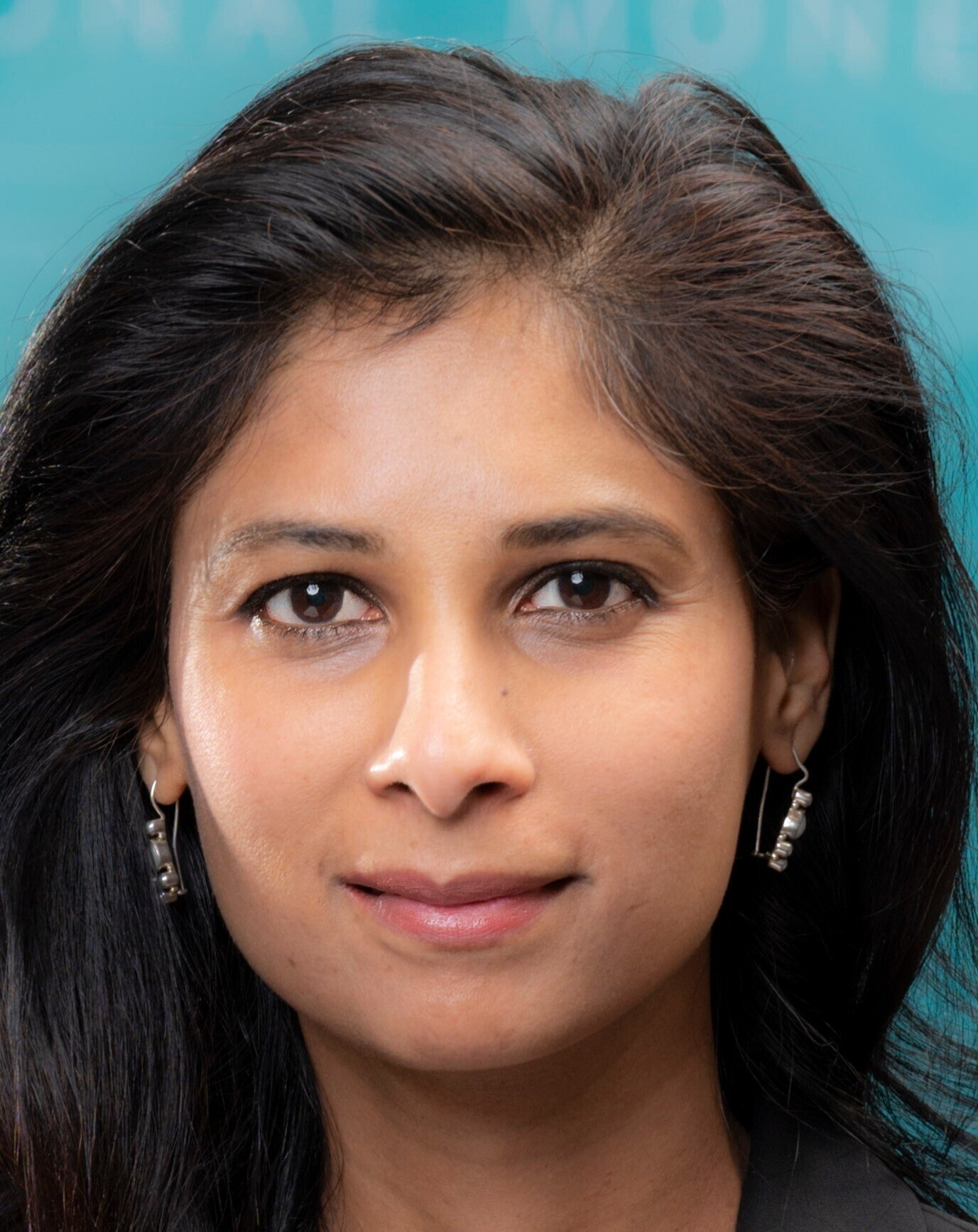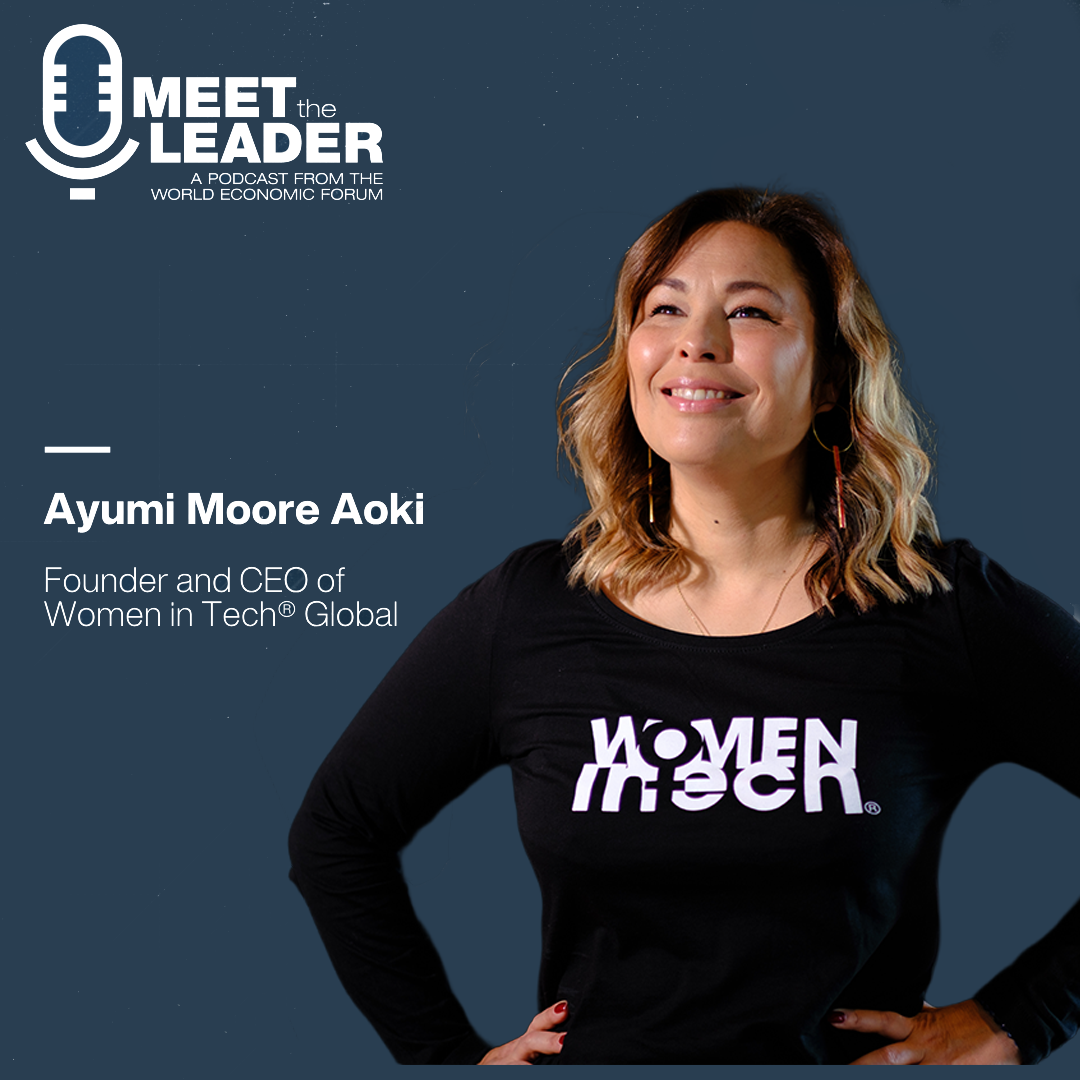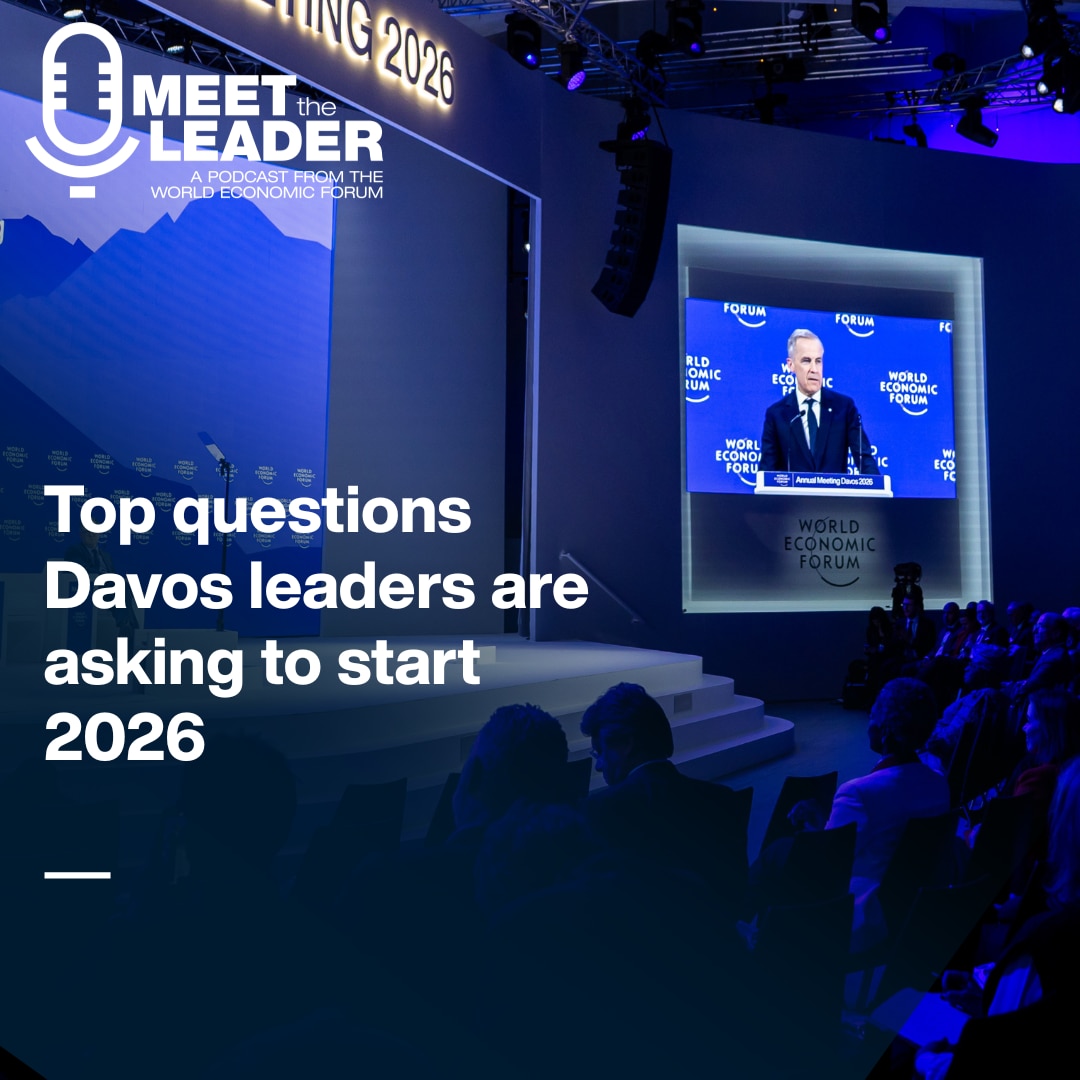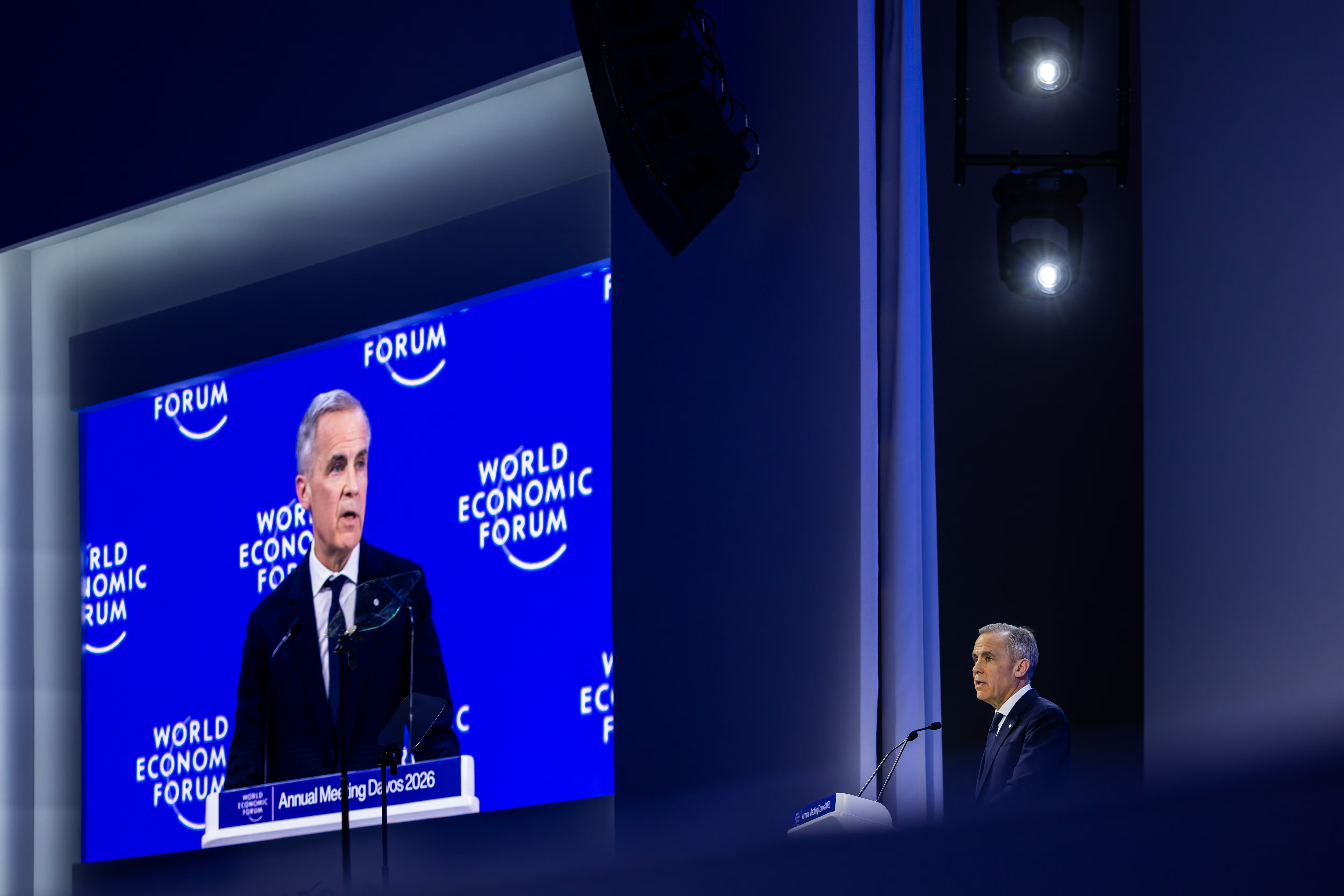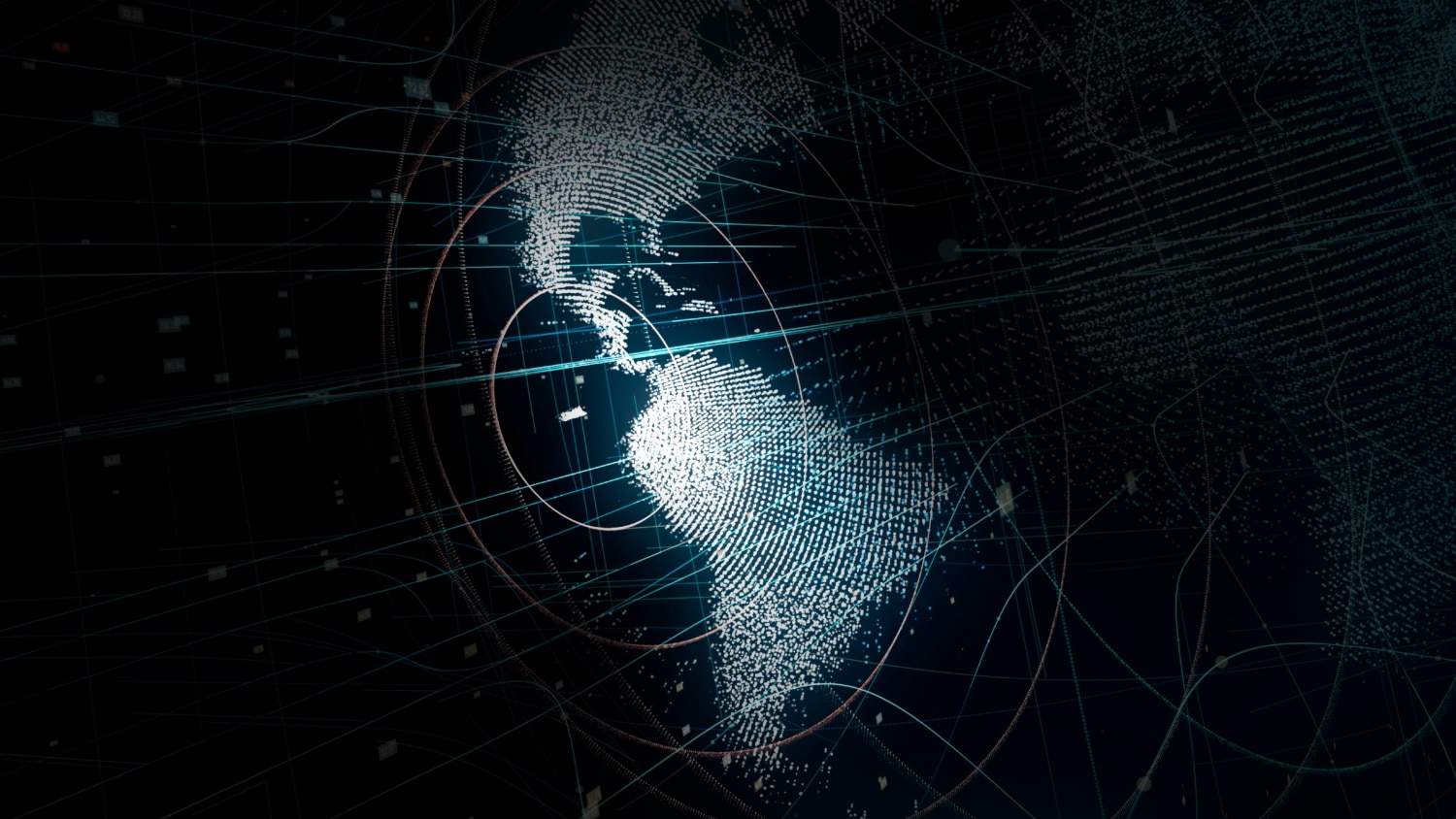IMF's Gita Gopinath: What's ahead for economic growth in 2025
播客文字稿
This transcript has been generated using speech recognition software and may contain errors. Please check its accuracy against the audio.
Linda Lacina, Meet the Leader Welcome to Meet the Leader. I’m Linda Lacina and I am delighted to welcome Gita Gopinath to our beautiful podcast studio here in Davos, Switzerland, at the Annual Meeting.
Gita is one of the world’s leading macroeconomists and she’s also a bit of a trailblazer. She was the first female chief economist at the International Monetary Fund. She has a new role now of first deputy managing director. Welcome Gita.
Gita Gopinath, IMF Thank you Linda. And it’s a real pleasure to join you on this podcast.
Linda Lacina, Meet the Leader Absolutely, absolutely. Let us get started with your just released 2025 Economic Outlook. Can you tell us the top risks and the top opportunities that we need to be understanding?
Gita Gopinath, IMF So firstly, I think we should point out that we are looking at steady growth for the world. It’s about 3.3% for this year and next.
But if there are two words I would focus on in terms of our forecast. It’s divergence and uncertainty. Divergence because while on the one hand we see the US economy doing much better than expected and quite strong, we’re seeing weaknesses in Europe and we see many challenges in China. So there is an important divergence that we’re seeing.
Second, on the uncertainty front, there’s a tremendous amount of uncertainty about policies around the world; be it trade policies, you know, there’s immigration, there is investment and private investment and where it can go and so on. So there’s a lot of uncertainty that we are seeing around the world.
But in terms of opportunities, I think we should keep in mind that this is the time of new technologies that we are all embracing in terms of generative AI, and that has the potential to raise productivity in the world. If it does really well, we think it could increase it by 0.8 percentage points of world GDP, which would be great because we have growth right now at closer to 3%, so 0.8% additional growth would be really terrific to have. That’s an opportunity.
I think countries also are seeing how they can fit themselves into the global supply chain and that would be another opportunity that they can seek.
On the risk side, of course, there is a lot of policy uncertainty in the world. Borrowing costs are elevated and for several countries their currencies have depreciated relative to the dollar and those can pose challenges.
Linda Lacina, Meet the Leader Is there, you mentioned a couple of numbers, but are there any statistics that you found particularly surprising or compelling that stuck out to you?
Gita Gopinath, IMF In terms of statistics, I would say, firstly, the fact that we have this divergence where we have a country like the US, which is growing at 2.7% and on the other hand, Europe where we’re seeing weaknesses and growth at 1%. So that’s an important divergence and that stands out.
I think another statistic is in terms of what emerging and developing countries will need in terms of investment to meet their sustainable development goals. And that is a financing of around $3 trillion a year for them to be able to reach the Sustainable Development Goals. And that’s going to be, you know, an important challenge but also an important opportunity for the world.
Linda Lacina, Meet the Leader And when it comes to the health of the global economy, what is maybe the number one thing that leaders should be prioritizing in 2025?
Gita Gopinath, IMF I think leaders should prioritize being agile. This is going to be a year with a lot of important policy shifts around the world. So focusing on how you can build resilience in your economy to these developments is going to be absolutely critical.
Focusing on how you can build resilience in your economy to these developments is going to be absolutely critical.
”Linda Lacina, Meet the Leader Given all these headwinds, what else can we do to re-imagine growth so that it is both sustainable, inclusive, resilient. What should we be doing?
Gita Gopinath, IMF Firstly, the world needs more growth and that is a priority.
We are concerned that our medium-term growth projections are some of the weakest we’ve had in decades. So the world as a whole needs to invest more in growth. It is important, of course, to make this growth resilient and inclusive.
We are seeing climate events around the world that are affecting countries’ prosperity. So it is important, therefore, to invest in the climate transition and it’s not just about climate change, it’s also about having growth coming through, new kinds of high tech jobs, and that is playing an important role. But also for countries to build energy security that is critical too.
Linda Lacina, Meet the Leader Given this outlook, this emerging market outlook, what is one key message that you would like leaders to take away, if you could say just one thing to them about the economy?
Gita Gopinath, IMF Emerging markets are a major part of the world economy. They are close to 45% of global GDP. And what we find is that increasingly over the last decade and what happens in emerging markets and developing economies has important spillovers to the rest of the world.
If you look at the large, major emerging markets, their spillovers are now comparable to the kinds of spillovers we see from domestic developments in advanced economies. So we’re all in this together and we all need to collaborate and cooperate to make sure that we have growth and resilience for the world economy.
We’re all in this together and we all need to collaborate and cooperate to make sure that we have growth and resilience for the world economy.
”Linda Lacina, Meet the Leader You have spoken a lot about the pivot in global fiscal policy that we’re going to need to be making to make sure that we’re ready for the next crisis. Can you talk a little bit about this pivot? What is going to be needed to tackle debt? What does that look like?
Gita Gopinath, IMF Global public debt is very high. In 2024 we expect it will end with it being at $100 trillion. That is a very large number. And it’s not just going to stay at that, we’re projecting it will continue to grow. So it is the case that the world has a problem of high debt and low growth and that requires immediate attention.
Countries can do fiscal adjustments and fiscal consolidation in a growth-friendly manner where they prioritize public investment, so maintain public investment to have growth but at the same time, make sure that they’re spending more efficiently.
And I’d say three ways that governments should look at their fiscal policy.
One, make sure it’s growth friendly.
Two, make sure that you have guardrails, which is you have good, sound fiscal frameworks that make sure that ensures that you keep your fiscal spending at a particular level.
And the third is grassroots, which is to make sure that the public is coming along with the kinds of reforms you’re trying to make.
Linda Lacina, Meet the Leader If all went right, say we do all those things – how is the world a little bit different?
Gita Gopinath, IMF Well, firstly, it is important to make sure that countries have enough buffers, fiscal buffers, to prepare for another shock. I’m sure we will have many more shocks in the future. And it is important that they are able to respond quickly to those kinds of shocks. But that requires having fiscal buffers in the world and also just making sure that you have the right level of spending and tax policies so that it is important to finance public investment but it’s also important to make sure that it’s at the right level so that you do not impede innovation and growth, which is critical too.
Linda Lacina, Meet the Leader You’ve talked about something really interesting that when it comes to debt projections, there’s often is an optimism bias. Can you talk a little bit about that so that people can inoculate themselves against it?
Gita Gopinath, IMF This is very important because, you know, in addition to the debt already being very high – as I said, $100 trillion and growing – if you look at our historical experience, we’ve tended to be actually optimistic about where debt will end. So historically speaking, if we were to project forward, you know, the actual level of debt could be 10 percentage points higher than what we are projecting, for instance, into 2030.
And there are two important reasons for it. One is that there are major shocks that happen around the world. You know, the great financial crisis, the pandemic. These events are hard to predict and they are the ones that help raise debt up.
And secondly, governments don’t often follow through on what they plan to do on the fiscal front.
Linda Lacina, Meet the Leader How can we address the key risks of emerging technologies to ensure that they aren’t exacerbating inequalities? What should we be thinking about?
Gita Gopinath, IMF I mean, firstly we should recognize that these are technologies that give us hope that we can raise productivity in the world and therefore, increase growth, both of which are critically important.
To make sure, though, that everybody is benefiting from it, countries should firstly invest in public digital infrastructure so that everybody has access to the digital economy and they can participate in the beneficial aspects of AI. It’s also going to be important to make sure the social safety nets can protect workers, for instance, who will need to transition to other kinds of newer kinds of jobs because there will be some job losses that come from automation. It’s important to do that.
And just in terms of reskilling your population, in terms of the education that they will need to benefit from this technology, all of these are important investments to make.
Linda Lacina, Meet the Leader Sure, absolutely, I want to talk a little bit about you, Gita. You joined the IMF a little bit before the pandemic. How have you changed as a leader since that time?
Gita Gopinath, IMF I’ve been at the IMF for six years now and these have been six very fascinating years dealing with the pandemic, dealing with, you know, Russia’s invasion of Ukraine and the energy crisis that has followed. So there is a lot that we have seen. I mean, I would personally say that I’ve come to appreciate more the importance of each country’s specific circumstances and how they have to deal with a similar shock that everybody faces. Countries are very different. They have a different history. They have a different way of economic thinking and that does matter for when we engage with them in terms of economic policies.
Linda Lacina, Meet the Leader And you personally, as a leader, is there something that you do now that maybe it’s a habit or a way that you collaborate to communicate that just would not have occurred to you six years ago when you started this role?
Gita Gopinath, IMF As a leader, I should point out that what is very important to me is to make sure that I’m hearing from a multiple set of voices and that people think that they can disagree with me about how I see certain things, because it’s very important in this fast changing world not to be caught in an echo chamber where only hearing things that confirm your views.
So encouraging a diversity of opinions, encouraging people to speak to you freely and honestly, is very important.
Linda Lacina, Meet the Leader That is a big focus of our Future of Jobs Report - these soft skills, making sure that there is a distributed sense of leadership across the organization, not just a command-and-control thing. What are elements that you think are key that need to be in place so people do feel comfortable? If you took something out of your culture or your team the way you guys work with each other, what would be lost? How do you make sure that people feel comfortable disagreeing with you?
Gita Gopinath, IMF I mean, if you want to be seen as somebody who’s willing to hear disagreements and hear criticism, I think you have to be forthcoming about it yourself. So I often like to point out things that I do incorrectly. And so personally, you know, pointing out some of the flaws in yourself can make you more accessible to people so that people feel that you’re open to hear their views.
Linda Lacina, Meet the Leader Our Future of Jobs Report also stresses the importance of these leadership skills and improving them, honing them, getting them a little bit better communication, collaboration on these things. You know, if there is one thing that you think leaders could be thinking about this year that they should be strengthening, what would that be?
Gita Gopinath, IMF Leaders are going to have to deal with a lot this year. These are changing times. There are risks but there are also lots of opportunities but I think it is important for them to make sure that they are bringing all of society along with the kinds of changes that they want to implement. So much more communication with them, getting their views in terms of how to think about policy design into the decision making process. All of that would be very important.
Linda Lacina, Meet the Leader And yourself personally, is there one thing that you’d like to strengthen in the year ahead?
Gita Gopinath, IMF Well, I think it’s important for us to be open-minded about all the different policy changes that will happen. Change can be good and it is, we continue to focus on our mandate of macro and financial stability. But as the environments change, we have to pay attention to what the new environment is while we keep our eye on macro and financial stability.
Linda Lacina, Meet the Leader Given all of the changes, all the things that are happening, what gives you hope?
Gita Gopinath, IMF You know, I remain hopeful in human ingenuity and particularly the kinds of technological developments that we’ve seen recently.
Because as I see it, there are three big challenges the world faces. One is not enough growth. The second is climate change. And the third is ageing populations.
And on all three fronts, I think technological developments can play a big role. And it’s the job of institutions like the IMF to make sure that that technological promise is made available to all countries and all people.
Linda Lacina, Meet the Leader And is there a piece of advice that you’ve always been grateful for?
Gita Gopinath, IMF I’ve always appreciated that people remind me that it’s important for you to ask for advice and to get advice yourself. Sometimes you have the impression that you need to make all the decisions without necessarily seeking other people’s advice on issues but the world, there are lots of people with tremendous amount of experience in the world and reaching out to them and getting their advice can help you clarify your thinking.
Linda Lacina, Meet the Leader And how has that helped you?
Gita Gopinath, IMF I think it has helped me realize that I’m not alone and that we’re a team and there are people who may actually have, will have, ideas and perspectives that I haven’t thought of.
Linda Lacina, Meet the Leader Thank you very much Gita. And for all of our listeners.
That was Gita Gopinath. Thanks so much to her and thanks so much to you, for listening.
This is just a sampling of the insights we’re sharing from this year’s Annual Meeting. To not miss a single leader, session or trend follow WEF25 on social media.
Find a transcript of this episode - as well as transcripts from my colleagues’s podcasts Radio Davos at wef.ch/Podcasts.
This episode of meet the leader was produced and presented by me with with Taz Kelleher as Editor and and Gareth Nolan driving studio production.
That's it for now. I'm Linda Lacina from my beautiful booth in Davos, Switzerland, have a great day.
How will inflation, conflict and technological change shape economies in the year ahead? The International Monetary Fund’s First Deputy Managing Director Gita Gopinath sat down with Meet The Leader at the World Economic Forum‘s Annual Meeting in Davos, Switzerland to share what's next for global growth. She identified the statistics that she found most compelling and the risks and opportunities leaders must prioritize in 2025. She also described the pivot countries will need to make in fiscal policy to tackle historic levels of global public debt (levels that could hit the $100 trillion mark) and how "optimism bias" could stand in the way.
话题:
地缘经济与政治分享:
更多集:
每周 议程
每周为您呈现推动全球议程的紧要问题(英文)

